Reviews
George Romero
USA, 1993
Credits
Review by Adam Balz
Posted on 08 October 2013
Source MGM DVD
Categories 31 Days of Horror X
To study the early novels of Stephen King is to surreptitiously study the man himself. Each work is imbued with autobiographical elements that, while not unusual for a writer, add personal depth to stories that would otherwise seem overwrought and ridiculous. For instance, The Shining is the story of a father who is slowly becoming possessed by the demons of an old and infamous Colorado hotel, and those demons manifest themselves through a violent rage reminiscent of the father’s past alcoholism. King wrote the novel at a time when he himself was struggling with an addiction to drugs and alcohol, something he wouldn’t officially kick for another decade; in the novel’s closing chapters, when the hotel finally consumes the father in an eruption of flame, it’s a tacit understanding on King’s part that his own substance abuse may someday lead to his own destruction, not to mention the downfall of his family. (An intervention was staged in the late 80s, and King has been drug-free ever since.)
For another example, take The Dark Half, perhaps King’s most blatantly self-inspired work, as it concerns an author whose pseudonym comes to life and hunts the author down. When King wrote the novel, he’d already been exposed as Richard Bachman, another bestselling author whose novels read suspiciously like King’s, though it would take the public some time to discover this. (And in the end, as King himself later admitted, the first to connect the rather obvious dots was a man named Steve Brown, who worked as a bookstore clerk in Washington, D.C.) Not that King was all too interested in hiding his other literary identity; as Zach Schonfield pointed out in an article he wrote for the Atlantic Wire earlier this year,
None [of Bachman’s books] was wildly successful, and each contained clues pointing to the author’s identity (not to mention the writing style itself). But then The Long Walk gathered a cult following… and rumors began to fly that King had a pseudonym—some readers even pointing to the Bachman books, but none with definitive proof. So King added fuel to the fire.
King - as Bachman - goaded his publishers into giving the next title a little more publicity, releasing it in hardcover first, and giving it a larger first printing—or, as the article quotes, “they were trying to make Richard Bachman Stephen King.”
The entire Bachman episode was more or less an attempt on King’s part to publish more than one book a year, as was the custom back then, but also to see if his early fame - Carrie, The Shining - was due to talent or just a fluke. Hoping it was the former rather than the latter, he published books under a different name, and their moderate success - which flourished after the big reveal - gave him the answer he needed. Which meant, after Steve Brown’s discovery, he could afford to kill off Richard Bachman for good. With The Dark Half, King got as close as he could to depicting how it might happen in real life, and with the same level of embellishment and flair that had made his other books - including the Bachman books - popular.
When time came to adapt The Dark Half to film, however, there was a problem. Much of the novel reads like a revenge drama, in which an isolated character makes his way through a hierarchy of villains in search of the top one - the boss of it all - sometimes for the sake of redemption, and sometimes for the sake of payback. It makes for a fun read, and it also makes for great cinema, but herein lied the difficulty: the lone warrior was, in this case, the villain, a pseudonym-come-alive named George Stark who massacres his way through a series of friends and collaborators in search of Thad Beaumont, his innocent originator. The revenge-porn hero is in fact the villain, which disrupts the narrative Hollywood was so accustomed to; after all, it’s one thing to watch eccentric villains be dispatched for hours on end à la Kill Bill, but it’s another to watch that happen to innocent characters.
At the same time, King’s novel is fed by a deep literary vein keeping that fun but exhausting slaughter-fest alive, typified by a cloud of sparrows that appear throughout the book and act as psychopomps—a term used by the protagonist himself in a moment of grating self-awareness, something for which King’s writing is sadly known. The filmmakers adapting The Dark Half would need to somehow balance both this depth and the empty blood-lust of the main villain’s quest to make a worthwhile adaptation; if they focused too much on one or the other, it would very quickly slip into either a detaching art-house mode or a tiring shock-horror storyline, both of which were niche markets in the early 1990s that tended to alienate a majority of viewers.
The eventual outcome, written and directed by George A. Romero - who was already a King adaptor, with Creepshow a decent success - is undeniably silly for much of its run-time but manages to create moments of genuine awe, most of it surrounding the psychopomps of King’s novel. Having not seen the film in more than 15 years, all I could clearly remember from my initial viewing was the ending, in which the cloud of birds descends on Beaumont’s home, where the hero and the villain finally confront one another. Stark is an ugly, wounded man, and his rampage has brought attention not to himself but to Beaumont: they share fingerprints, and slowly Stark has begun to take over Beaumont’s own consciousness, penning notes to Beaumont through Beaumont himself. (Beaumont realizes midway through the film that he and Stark share a cognitive bond.) This means that Beaumont is the suspect in every murder we’ve seen so far, and this confrontation - in a room filled with books, no less - will decide Beaumont’s fate.
Which leads to the ultimate question of the both the book and the film: is Stark an actual person, manifested out of something both physical and otherworldly; or is he simply a manifestation of Beaumont’s own mind, like a second personality, an after-effect of the tumor-like twin who was excised from his brain as a child, and the final confrontation is not so much an external climax but an internal one, in which two competing identities fight it out for sole domination over the man? The film seems to hint at the former, though it leaves enough room - thankfully - for us to see the book-lined room as a stand-in for Beaumont’s mind, where the personalities come together amid the very things that nourished their existences to begin with. Beaumont’s is a gifted writer, we’re led to believe, and in the closing scene we see Stark’s wounds and ugliness begin to heal as Beaumont writes more, almost as though the act of writing was feeding the very beast he was determined to slay—a modern version of Beowulf whose sword both creates the creature and destroys it. (Sadly, the metaphor becomes a bit muddled when you think about it too much, or try and apply it to King’s real-life experiences, though that doesn’t mean it isn’t entertaining for those 120 minutes.)
There is a strange but interesting subgenre of horror films that, lacking any agreed-upon label, can best be described as “something evil from the inside escapes.” Most of these films center on pregnant women and their wicked, murderous newborns - sometimes even fetuses - with mixed, often hilarious and forgettable results: Grave of the Vampire, Possessed by the Night, I Don’t Want to be Born, The Omen, The Unborn, It’s Alive!, and the Polanski classic Rosemary’s Baby. Very rarely, though, does horror produce a film in which the creature from within - in this case, a tumor that also happens to be a pseudonym - is an adult whose actions mirror those of its creator, who is, in this case, a little boy and future author. The idea that something real - an absorbed twin, a tumor in the brain - and something fictitious, like a nom de plume, could both be somehow intertwined is a very rare plot-point in cinema, and perhaps the greatest compliment one could give Romero is that, rather than trying to explain it all away or invent a justification through science or medicine, the situation is allowed to be as nuanced and unclear as cinema can be without becoming lazy. If you take away the psychopomps and all other literary flourishes, there is still the story of a man being hunted by something he invented but doesn’t understand; if you take away the blood-lust of the revenge-film hierarchy, there’s still a man at war with himself, or a physical representation of himself. The Dark Half, for all its flaws, is a movie happy to exist in a limbo where reality and fantasy are conjoined and almost inseparable, and that at least is worthy of admiration.
More 31 Days of Horror X
-
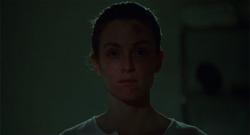
Safe
1995 -
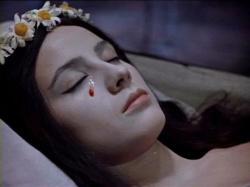
Viy
1967 -
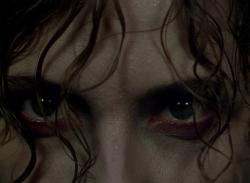
Black Narcissus
1947 -

Possession
1981 -

Carrie
1976 -

The Devils
1971 -
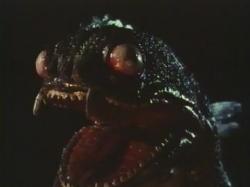
The Sea Serpent
1984 -

The Dark Half
1993 -

The Baby
1972 -
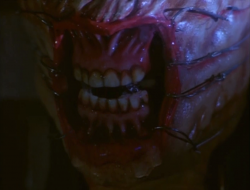
Hellraiser
1987 -

The White Reindeer
1952 -
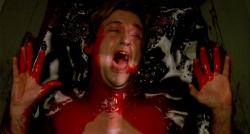
The Serpent and the Rainbow
1988 -
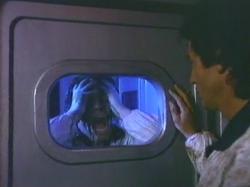
Endless Descent
1989 -

Prom Night
1980 -

Night Train Murders
1975 -
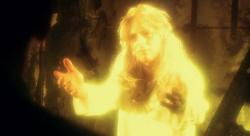
God Told Me To
1976 -

In a Child’s Name
1991 -

Beasts
1976 -

Prom Night II
1987 -
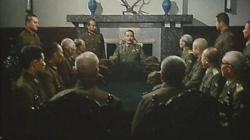
Men Behind the Sun
1986 -
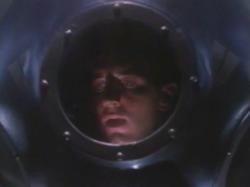
DeepStar Six
1989 -
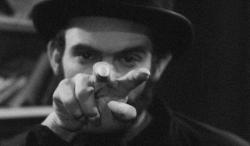
At Midnight I’ll Take Your Soul
1964 -

They Came Back
2004 -
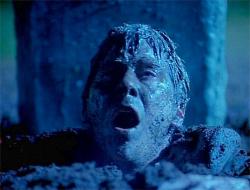
Buried Alive
1990 -
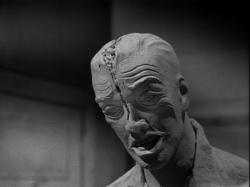
A Bucket of Blood
1959 -
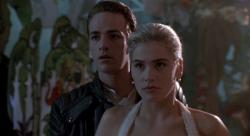
Buffy the Vampire Slayer
1992 -

Night and Fog
1956 -

It Came From Beneath the Sea
1955 -
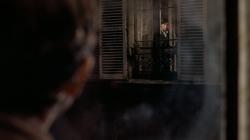
The Tenant
1976 -

Tokyo Gore Police
2008 -
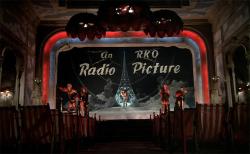
The Rocky Horror Picture Show
1975
We don’t do comments anymore, but you may contact us here or find us on Twitter or Facebook.



